This is a travel post without any theological reflection.
First, a Story
Slavo was in the old town of Bratislava, standing by the town’s plague column (Morový stĺp). It’s an area of high traffic with lots of tourists, between where many people disembark from intercity buses or Danube cruise ships and the sights of the city. He was on his phone when a group of what he can only describe as Karens – white women, with the haircut – approached him. He became aware of them when the Head Karen, with painfully enunciation, shouted “OPERA HOUSE” at him with a clear American accent.
“OPERA HOUSE!”
He stared at her, entirely unsure of what to make of this incredible show of rudeness.
She tried again.
“OPERA HOUSE!”
No reaction from Slavo, still utterly stunned. Many tourists in Bratislava ask for directions, that part is not at all unusual. This having a place just shouted at him was brand new. She persisted: “WE ARE IN A HURRY. OPERA HOUSE.”
Slavo was flabbergasted.
One of the other Karens said “maybe this one doesn’t speak English” which was enough to revive Slavo (this one definitely speaks English). Needless to say for anyone who knows Slavo, they got cussed and then he stormed off. But their sheer rudeness really coated him. Those women will likely remember an ornery native who was so mean and unhelpful and tell stories about how much the people in Bratislava suck. Slavo will remember three American women who treated him like an animal – another memory to add to all the tourists who stumble off boats in Bratislava to get wasted and trash the town.
But I do have to wonder, what made them think that basic decency was too much to give?
Now the body.
An Open Letter to the Tourism Industry (about the LEAST of your problems)!
This is petty but:
I’m not sold on the entire of idea of authenticity – especially when tourism is concerned. I think this comes from growing up in such a touristy place, but authenticity seems like just another thing to be sold, just another marketing gimmick. Obviously, it assumes there’s something real to be found and profited from, something that other tourists don’t have access to.
Now, I grew up in an extremely touristy part of an extremely touristy place, in a town with noted and significant resentment towards very tourists who keep our economy going. A healthy and responsible tourist industry would not only pave the way for a smooth and low-stress experience for tourists, it would also manage to cultural, environmental, and economic impact of tourism on the place/people who live there. Of course very few tourist industries are actually interested in sustainability or any sort of responsibility.
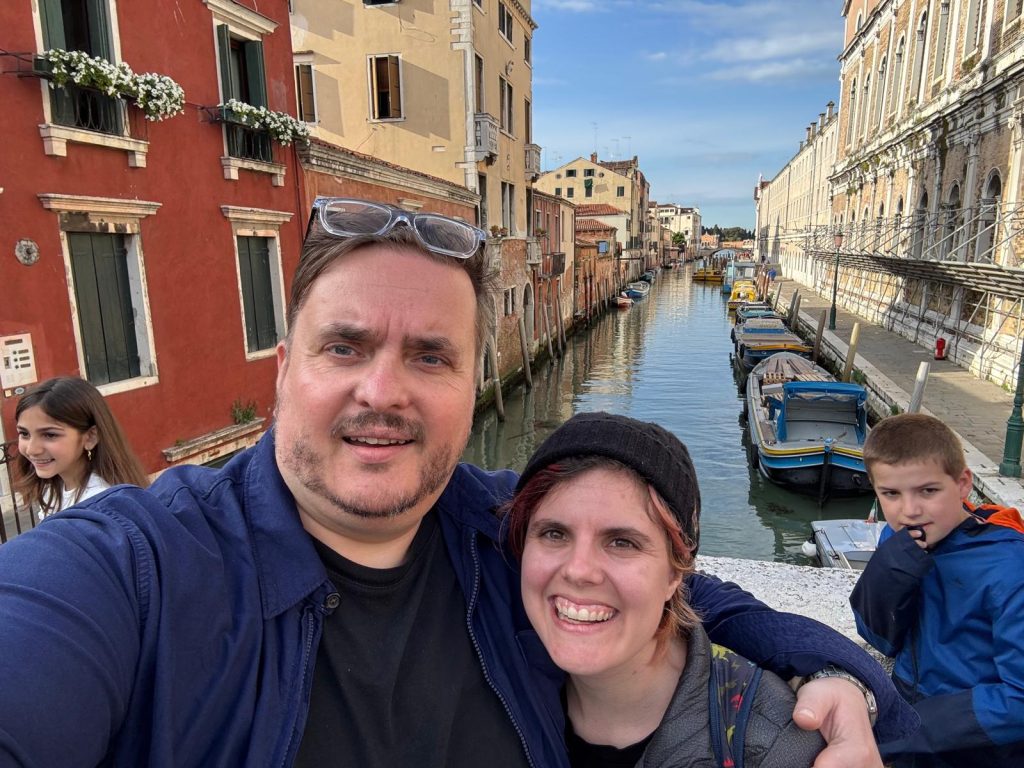
Businesses, and tourist businesses are no exception, are as a rule short-sighted because their success involves showing growth for the next quarter, not their long-term viability. The idea of authenticity is of course bound up in this – in a tourist industry that thrives on sucking places dry, authenticity is often about *expansion* into places tourists don’t usually go. All the tourists are at Waikiki beach, but only LOCALS go to…I found this amazing hidden gem, really off the beaten path…by it’s very nature, of course, the sale of authenticity destroys those things it thinks it’s found.
My town used to be a sleepy little beach town, and now it’s a touristy little beach town. People came because it is cute and lovely, people came for all sorts of reasons – and it’s not the same town as when I was a child. This doesn’t have to be a bad thing, but one of the custodians at my elementary school put it fairly well: she is of retirement age, and she doesn’t recognize the town she grew up in. I was once talking with someone about this very issue of authenticity, not from Hawaiʻi, and they said “isn’t it more authentic to sit on [the tiny beach in my town] than to stay on Waikiki beach?” I would say no – because if, as this person did, the idea is that there is something more local about sitting on the beach in my town than on the beach at Waikiki, then I think there are two problems:
- the fundamental nature of being a visitor to a place is not something we can mask or forget – it’s a type of privilege, and attempts to mask it obscure the potential for damage that privilege can do
- it ignores how being a visitor somewhere means that where we go, we change the place
The beach by my house used to be quiet and less crowded – now it’s constantly busy. I am not saying there is a problem with it, but people like my interlocutor come for a sense of authenticity and have co-created the environment in a way they can never understand. Locals, in a place, of course do this too – but they have to live with the consequences of the place they make. Obviously, there are class divides that means that those consequences are not equally felt – that custodian, a Hawaiian woman, at my elementary school does not face the same consequences of policies of gentrification and touristification that my comparatively wealthy and white family faces. Still, tourists can unintentionally muck up a place for a week and leave their mess – locals do live with the effects, positive and negative, of out-of-control tourist industries packaging and selling authenticity and draining places dry.
Ironically, I write this from Padua, Italy, trying to plan the itinerary for our second day in Venice. I write this as a tourist visiting a city that feels unreal, like a theme park – with its invented traditions and very long history key-chainified for my shopping pleasure.
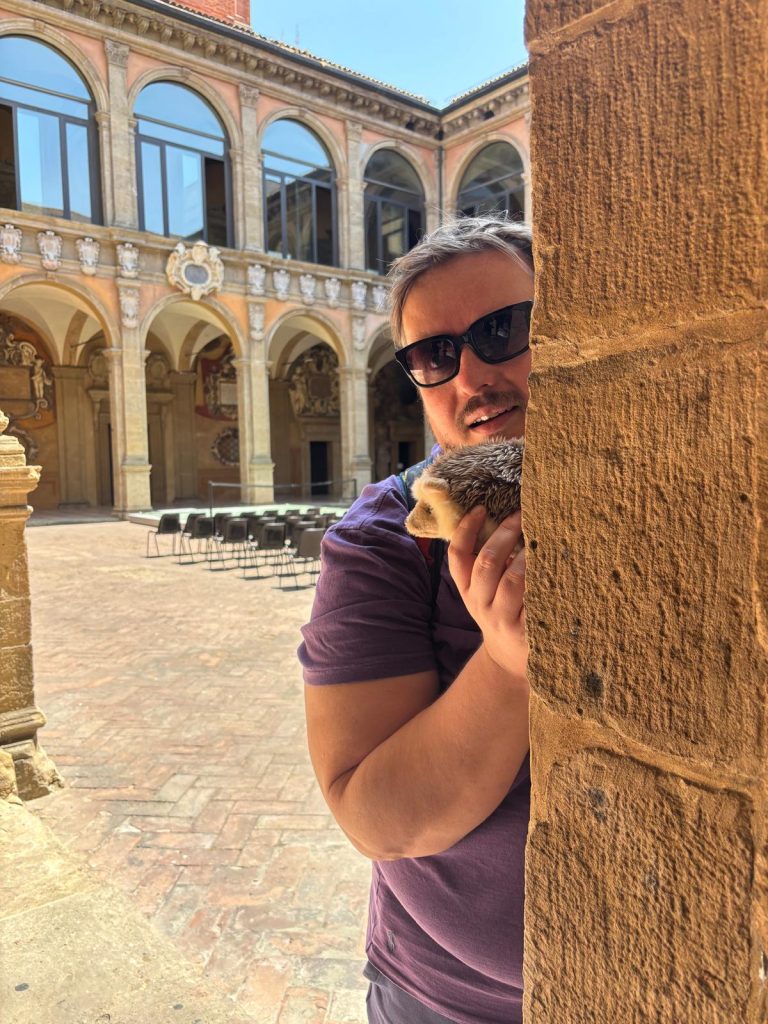
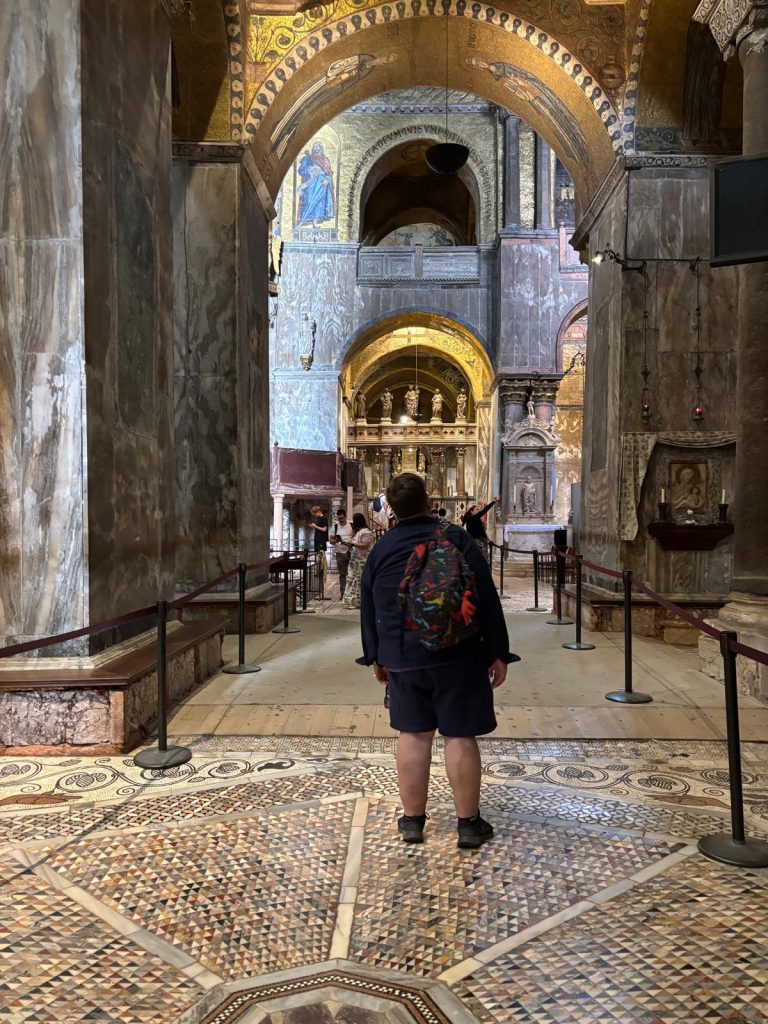
We bought the Venetian warflag and took selfies on the canals and had really a wonderful time doing it. We researched the best gelato in the city and will definitely be taking the gondola ride (with our tiny stuffed hedgehog). We have a whole list of local specialties – pasta shapes and pastries for me, meat and fish delicacies for Slavo. We spent a long time in St. Marco’s, having got in just before the last entrance, and stayed through Vespers (at which point they did the breviary as expected and then did who knows what – but they did give part of one of Cyril of Alexandria’s sermons which was not in line with any of the recommended readings for the day but was, indeed, a choice).
I am really over here having a wonderful time – and it’s really only when I am trying to find specific activities that my goat is got.
Slavo and I really know where we fit in the typology of tourism: we like to try new things, learn new things, and see new things. We are the novelty seekers. We want to go to the grocery store and see what ingredients we can’t get at home, then cook something with those. What’s X? Is melon in season right now in Northern Italy? We want to walk down the street and gawk at architecture and argue about what the symbols on the license plates mean. We want to read inscriptions on statues and google references we can’t get. We like staying in quiet places with a kitchen and a view of the street so we can people watch. We enjoy watching other tourists, locals, and people who could be either. We will go to bookstores and see what gems we couldn’t buy at home from small presses in the area. We will try the saffron-rose-pistachio ice cream even if it sounds like it’s trying to do too much (it was). And then when we have had enough new-ness we will go to McDonald’s or cook something super familiar and stay home and watch youtube or sit in a park and read.
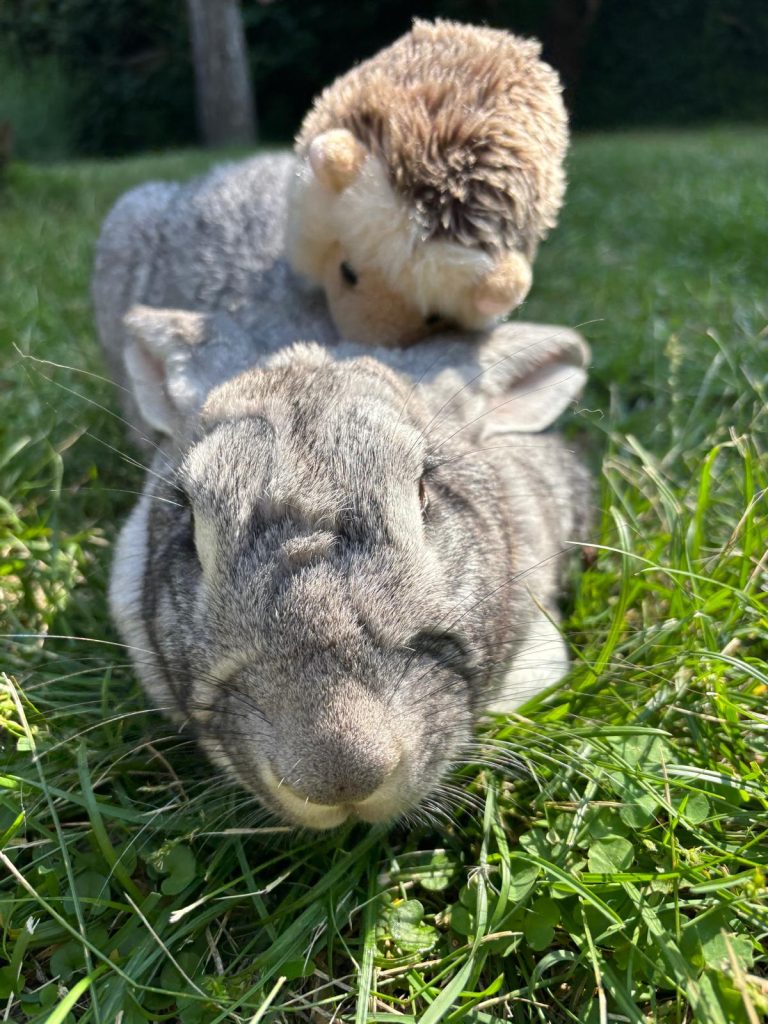
We are not confused about the fact that we’re tourists – that’s literally why we came. Obviously, we are trying to be respectful and sort our trash correctly but we don’t belong in these places – funny because Slavo and I are both the sort that get mistaken for not belonging in the places we are actually *from*.
But, as I am trying to build our itinerary, people keep trying to sell me Authentic Venice or “Venice for the educated traveler”.
I guess, my dream as a tourist is that I could just enjoy the things I want from the many many offerings without inflicting too much damage on the places I visit and co-create through my visiting…and that the tourist industry would leave me in peace to like the things I like without having to invent some sort of authenticity for me to then destroy.
To be more specific:
Let me go to the printing history exhibition in peace without having to make it seem like some secret elite thing. Enough people want to go that they made it and can sustain it – let me enjoy it.
Not every complaint has to be deep and here is mine.
Yours,
-Briana Grenert
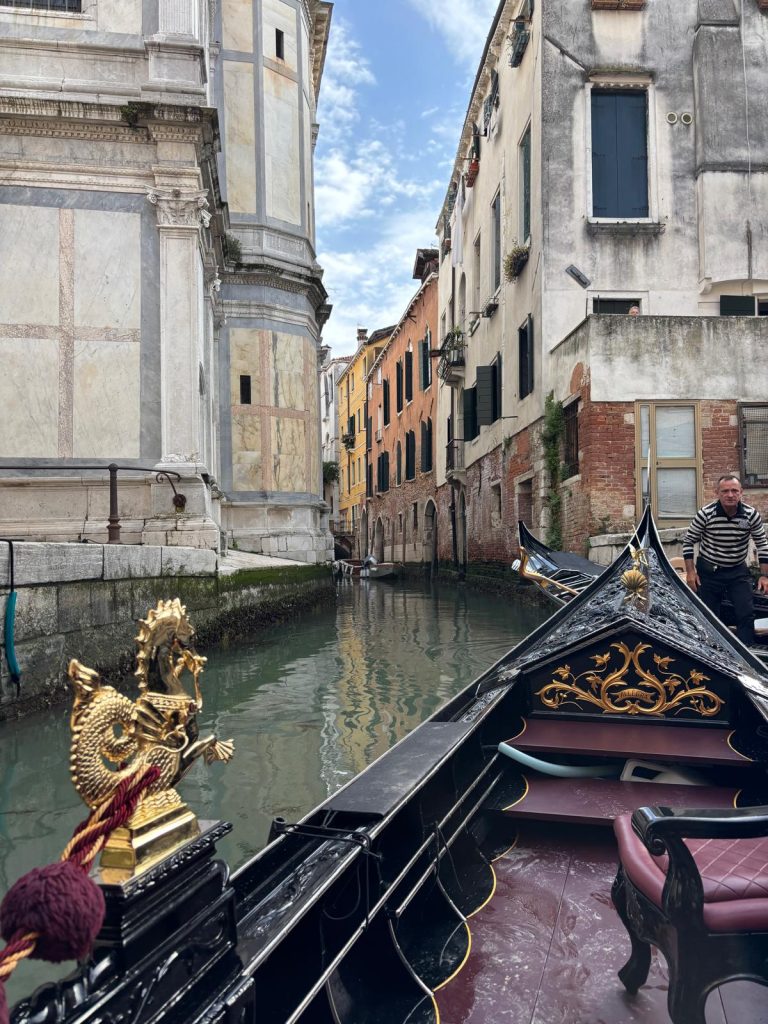
Leave a Reply